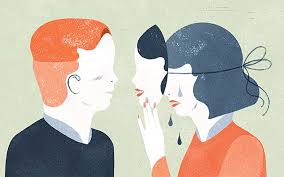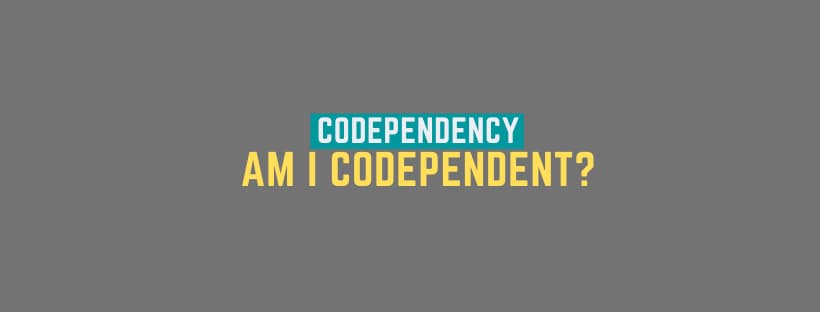
Codependency often exists in families of addicts and those who have persistent untreated mental illness. Codependency is a dysfunctional relationship, where one person enables unhealthy behaviors, while the other relies on that person to meet their needs. Being in a codependent relationship is exhausting and one-sided. Below are five of the common signs of codependency.
1) Dependent- Do you rely on others to make you happy and give you worth? Do you fear being alone? Will you accept behaviors, that you know are not okay, to avoid being alone?
2) People-pleaser- Is it difficult for you to say “no?” Do you sacrifice your own activities, free-time, or money to please someone else? Are you resentful that you can’t say “no?”
3) Boundaries-Has anyone emphasized the need for you to create boundaries with certain people in your life? Do you feel responsible for other people? Do you allow people to do things to you that you would never do to someone else?
4) Caretaking-Do you feel compelled to help others or anticipate other people’s needs? Do you feel guilt when other people have a problem, or feel responsible for their well-being?
5) Poor communicator- Do you have a problem with saying what you mean? Do you feel anxious when you think you must confront someone? Have you made a lot of empty threats?
If you can relate to these signs of codependency, it is important for you to learn more about codependency and find support. Codependent behaviors are learned behaviors, used to protect and meet needs. When the need for these behaviors are no longer warranted they can bring disruption and self-destruction. Thankfully, you can learn new behaviors that will bring you a better quality of life. Let’s look at a scenario involving a wife, Mona, whose husband, Mike, is abusing methamphetamines.
Mike has not made it home from work. It is payday and Mike knows that the car payment is due today. Mona has threatened to leave Mike if he does not stop using drugs. Mike’s response was to physically and verbally assault Mona. Mona packed her bags to leave that night, but by the next morning she felt guilty and knew that Mike wouldn’t make it without her. Instead of leaving, she stayed and told him if it happened again she was leaving him. Now, tonight, she is questioning where he is and becoming more and more frustrated. Mike finally strolls in around 1am and tells Mona the company van broke down. He also told her he didn’t get paid. She doesn’t believe him, but wants to avoid confrontation. She says she will just use the money she has been saving for a new couch to pay the car payment. She is angry inside, but decides it is easier to just let it go.
Mona is not doing Mike any favors by allowing him to use the bill money on drugs. She is enabling him to continue his drug use. Resentment will continue to grow in Mona, while Mike’s drug use will continue to spiral out of control. Therapy and support groups can help Mona and Mike. The drug use is a primary concern to be addressed. If Mike does not stop using it is going to be difficult to learn and practice healthy behaviors. Mona must identify her codependent behaviors and begin addressing each element. The best way to achieve this is to seek individual therapy. In therapy, you will learn the importance of setting boundaries and valuing yourself, and how to replace codependent thinking with healthy, independent thinking.
Beattie, M. (1992). Codependent no more. Center City, MN: Hazelden Publishing

